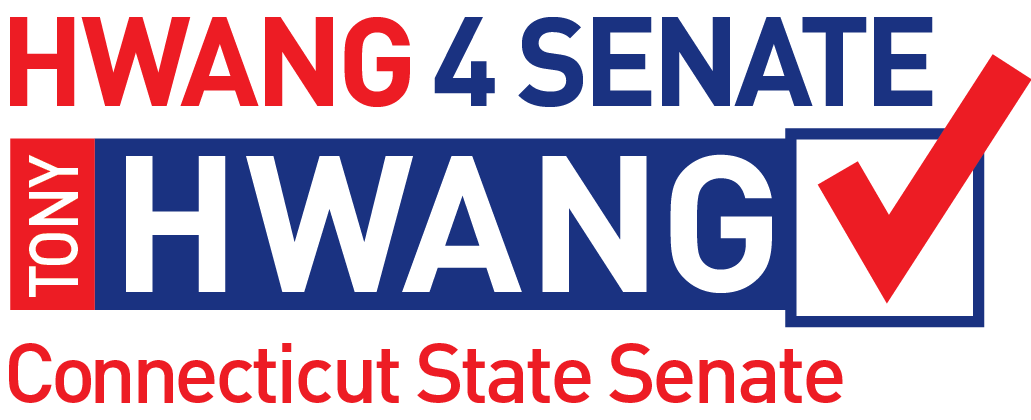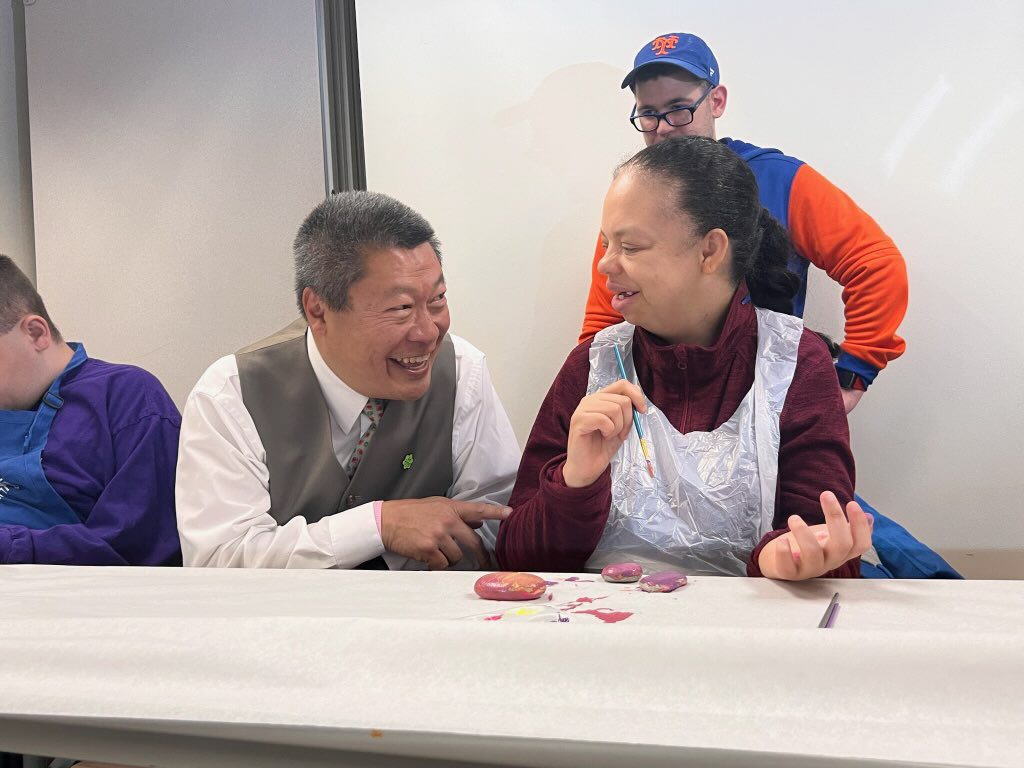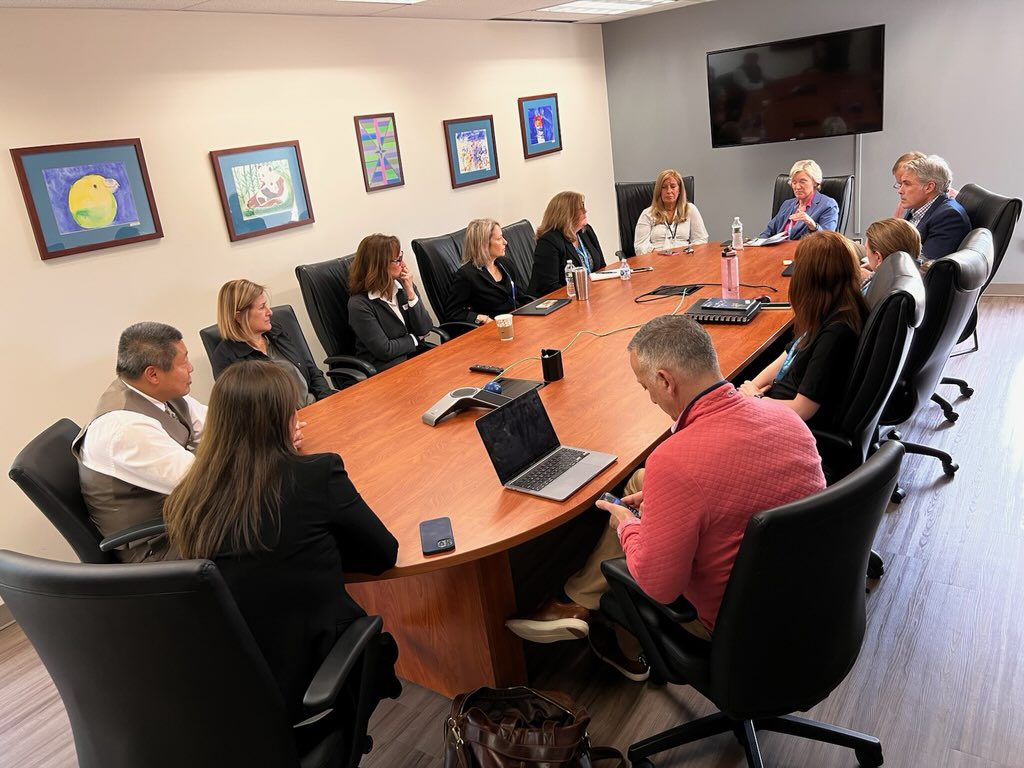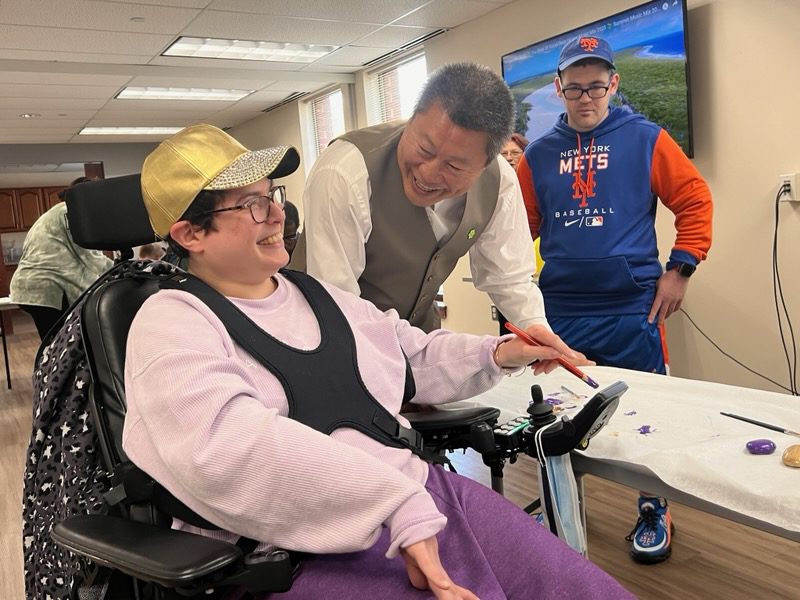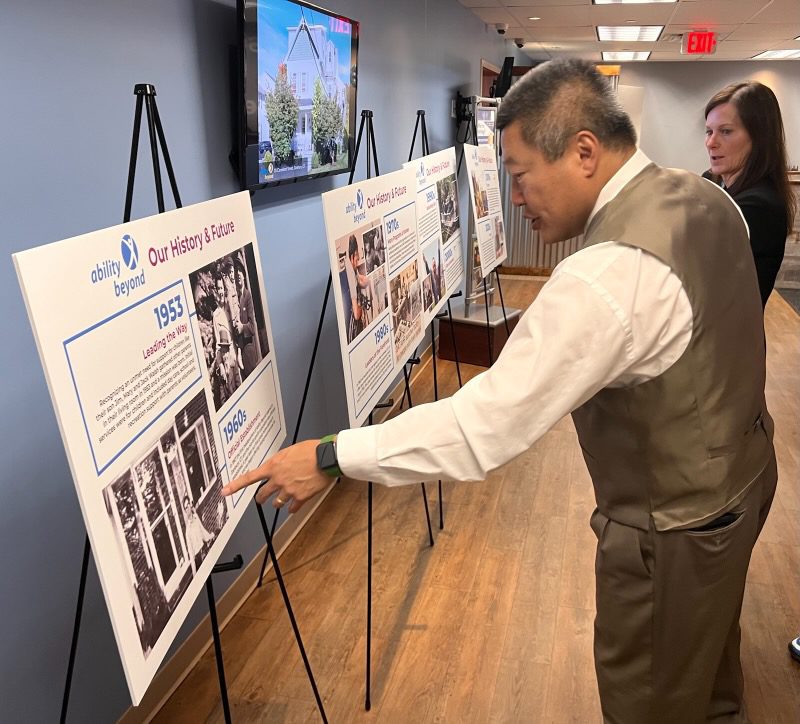For Immediate Release
Sen. Hwang Supports Equitable and Sustainable Funding
for Community Disability Service Providers
BETHEL – Leaders with Ability Beyond, one of the state’s largest providers of services for people with disabilities, met with state Sen. Tony Hwang Monday to discuss the critical need for additional funding for disability services. The visit coincides with April as Autism Awareness Month and March as Development Disability Month.
“We have just wrapped up Autism Acceptance Month,” Sen. Hwang said. “A month dedicated to respecting the rights and humanity of all autistic people and highlighting the perspectives and needs of autistic people with intellectual disabilities. This month, and every month, we must continue to raise awareness about those needs. That’s why, as a policymaker, I am so pleased to learn more about the great programs Ability Beyond provides, from behavioral services to employment opportunities. Ability Beyond CEO Jane Davis and her staff do a wonderful job, and they are making positive impacts on people’s lives every day.”
“Local non-profits like Ability Beyond constantly struggle to provide life-changing services to individuals with physical and intellectual disabilities,” Sen. Hwang added. “They often compete with state agencies for funding in the state budget due to an unsustainable dual delivery system. Community non-profits like Ability Beyond often provide comparable or superior care than state agencies at a much lower cost, making them a better investment for the State.”
Sen. Hwang has long advocated for the streamlining of social services and eliminating the “dual delivery system” in Connecticut where deeply entrenched community based non-profits along with state agencies provide the same care. Research has shown that it costs about 2.5 times more to take care of the clients with the same level of need in a public community living arrangement as a community based non-profits.
“Every taxpayer dollar is precious and safety net supportive services are essential,” said Sen. Hwang. “Our community non-profits like Ability Beyond are the answer. By focusing funding on these incredible groups, we can get way more bang for our buck by helping more people with less money. This is a win-win-win proposition. The clients win, our valued non-profits win and the state budget and taxpayers win. Our current duplicative system in Connecticut is outdated, inefficient and costly. I will continue to bring that message to advocate for this common sense reform until we get it right.”
Jane Davis, the Chief Executive Officer for Ability Beyond, said the current budget proposal before the General Assembly only calls for a one percent increase for the next two years. The near zero increase on top of decades of underfunding private service providers is creating a crisis among care for people with disabilities, she said.
“Unfortunately, I’m getting calls from other providers who say they can no longer afford to provide services,” Davis said. It’s concerning to think about where they might go next for help when all providers will feel the strain of an effective cut given the rise in costs without increases in funding.”
While state agencies that provide the same services get annual increases and more state funding (dual delivery), Ability Beyond is still being reimbursed by the state government at the same rate as in 2009 for some of our services, she said.
“Try hiring a nurse during a shortage when we’re paying pre-Covid wages compared to other healthcare facilities that are also offering huge sign-on bonuses and other incentives,” she said. “It’s extremely difficult.”
“Our community based nonprofits are low cost high quality service providers,” said Lori Pasqualini, Ability Beyond’ Chief Financial Officer. “We’re a bargain. To underfund them and potentially put them out of business just doesn’t make any fiscal sense. It’s hard to watch as nonprofits provide the majority of services but get a fraction of the funding.”
Hwang said he would take the message back to his colleagues in Hartford
“Ability Beyond is doing incredible work, and through innovation they’re ensuring they can continue to provide these services,” he said. “But there has to be a more equitable funding structure. When I go back to Hartford I am going to fight for our community based non-profits.”
The post photos: Sen. Hwang Supports Equitable and Sustainable Funding for Community Disability Service Providers appeared first on Connecticut Senate Republicans.
